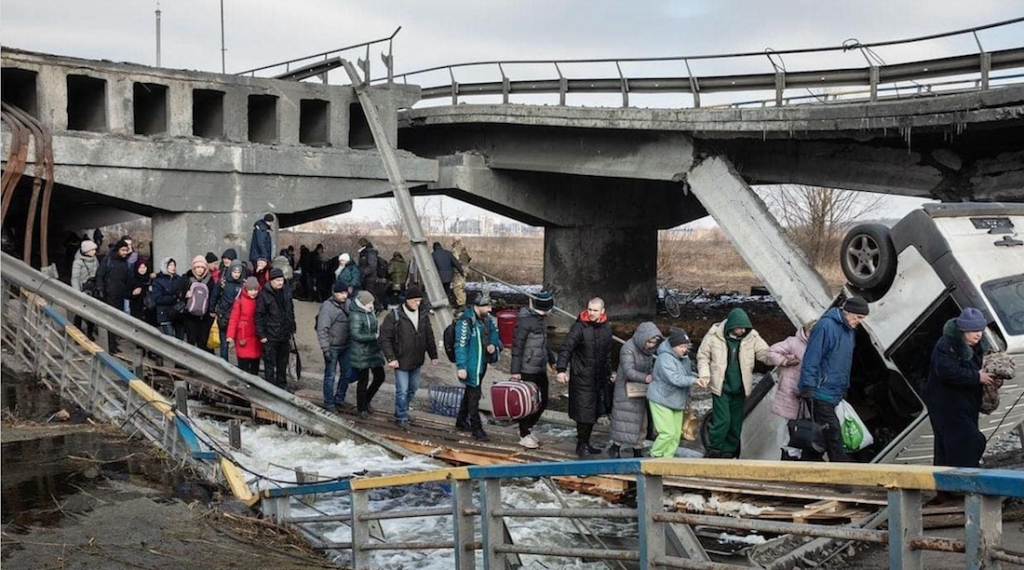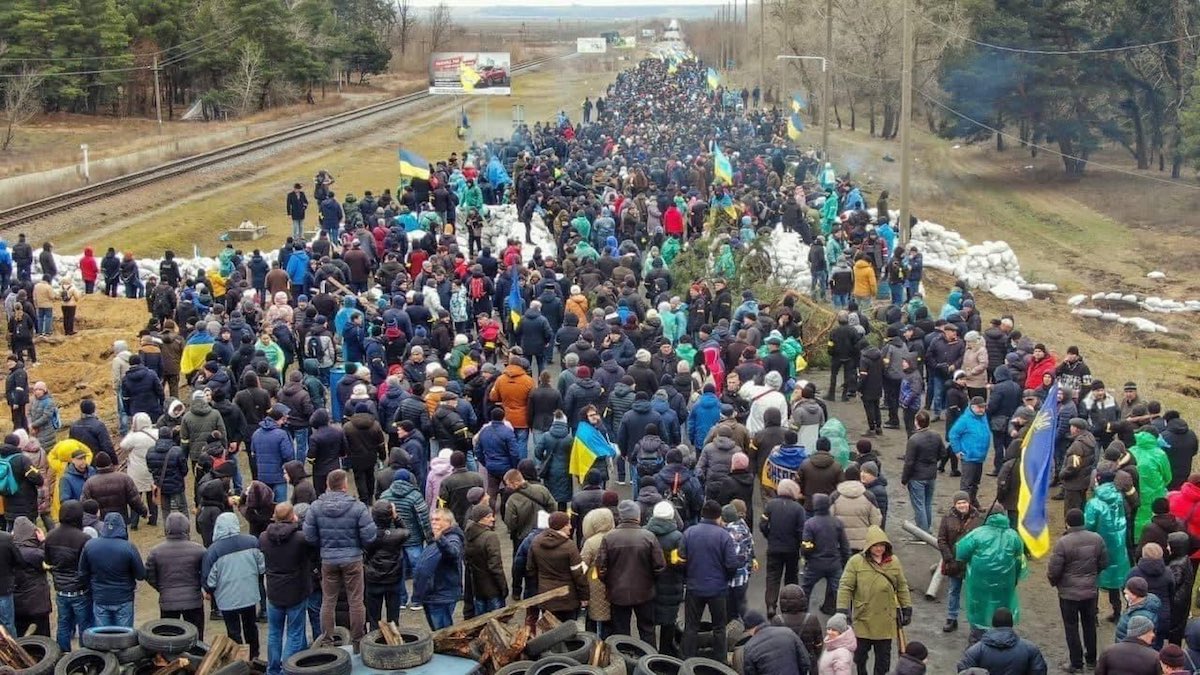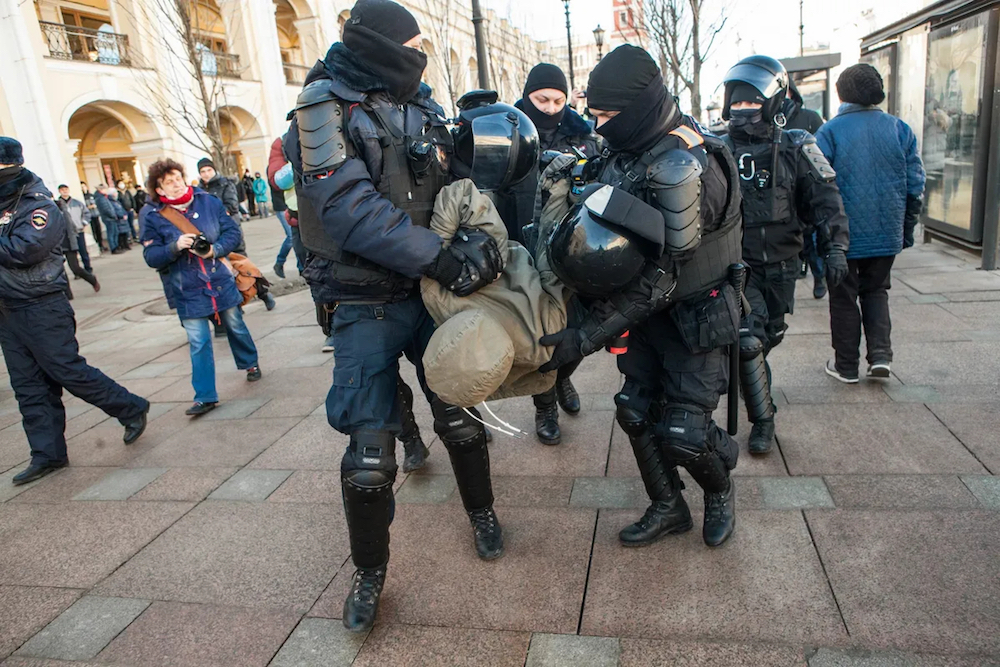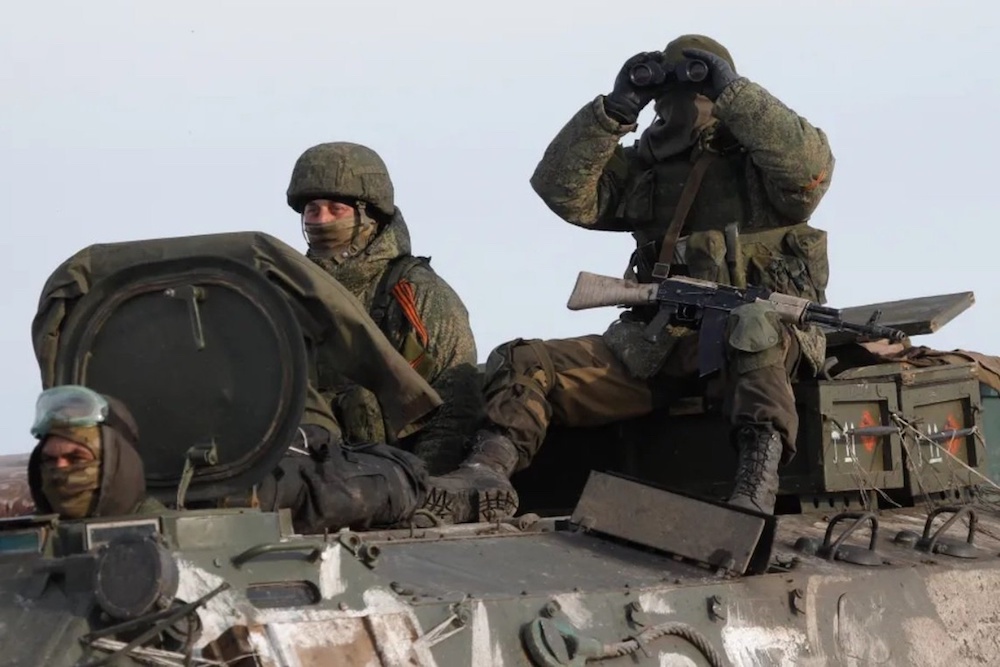Russian-Ukraine peace talks: Ukraine's backtracking from NATO is on the table
Negotiations between Ukraine and Russia
The Ukrainian and Russian delegations continue negotiations on the terms of the ceasefire, which should end the Russian-Ukrainian war. As confirmed by both sides, progress has been made in the negotiations in recent days.
The parties have not publicly spoken in great detail about the possible terms of a future peace agreement. However, it is obvious that Ukraine’s refusal to join NATO may be one of its conditions – at least President Zelensky and his advisers openly spoke about changing their position in relation to the military alliance. In return, Kyiv demands firm security guarantees.
The fact that after the “technical pause” that the parties took on Monday, March 14, the negotiations will continue, said adviser to the head of the Office of the President of Ukraine Mykhailo Podolyak.
Late on March 15, he announced that Ukraine and Russia agreed to continue negotiations on Wednesday, March 16.
“[This is a] very difficult and viscous negotiation process. There are fundamental contradictions. But there is definitely room for compromise. During the break, work in subgroups will continue”, Podolyak said.
The delegations of the two warring countries are now negotiating via video conference. Previously, they held three meetings on the territory of Belarus.
If until recently the parties managed to agree only on humanitarian corridors for the removal of civilians from Ukrainian cities, then on March 13 both sides started talking about some progress.
Thus, according to Mikhail Podolyak, the representatives of Russia “began to go for a compromise dialogue, and not an ultimatum, as it was right away”.

“We have specific goals in this negotiation process: the end of the war, the immediate withdrawal of all Russian troops, and the like”, Podolyak was quoted by the Ukrainian publication Hromadske.
On the same day, a member of the Russian delegation, State Duma deputy Leonid Slutsky noted that, compared to the beginning of the negotiation process, Moscow and Kyiv have made a significant progress in achieving a result:
“According to my personal expectations, this progress can develop in the next few days into a single position and into documents for signing”, the Russian Interfax agency quotes the deputy.
Positions of the parties
Judging by the information about the positions of the parties at the talks, leaked to the press in the previous days, any rapprochement between them seemed unlikely.
On March 10, the Ukrainian newspaper Zerkalo Nedeli published six demands that, according to the publication, Russia put forward at the talks. This was reportedly given to the publication by a high-ranking diplomatic source. These requirements are:
• Refusal of Ukraine’s movement to NATO. The neutral status of Ukraine, one of the guarantors of which should be Russia.
• Declaration of the Russian language as the second state language.
• Ukraine’s recognition of Crimea as part of Russia.
• Recognition by Ukraine of the independence of the pro-Russian “people’s republics” within the administrative boundaries of the Donetsk and Luhansk regions.
• “Denazification” – a ban on the activities of ultra-nationalist, Nazi and neo-Nazi parties and public organizations.
• “Demilitarization of Ukraine” – the rejection of offensive weapons.
The Kremlin has not yet officially confirmed these demands.
On March 13, Mikhail Podolyak said that the parties are discussing:
• conditions for a ceasefire;
• compensation for damages for the destroyed infrastructure of Ukraine;
• the process of withdrawal of Russian troops from the territory of the country;
• the terms of the peace agreement, the key point of which should be security guarantees for Russia and Ukraine.
Aleksey Arestovich, an adviser to the head of the Ukrainian president’s office, said on March 13 that negotiations were underway to “decorate Putin’s defeat” and that the issue of withdrawing Russian troops to pre-war positions was the bare minimum goal for the Ukrainian delegation.
Renunciation of NATO – the subject of negotiations?
On March 15, Volodymyr Zelensky made another skeptical statement about NATO.
“It is clear that Ukraine is not a member of NATO, we understand this. For years we have heard about supposed ‘open doors. But now they have also heard that we cannot enter it, and this is true, this must be recognized. I am glad that our people are beginning to understand this and rely on themselves and partners who help us. Ukraine does not currently claim to activate Article 5 of the NATO Treaty”, Zelensky said.
Earlier, on March 8, the President of Ukraine said that he had “cooled off” to the issue of NATO after “realizing that NATO is not ready to accept Ukraine. The Alliance is afraid of contentious things and confrontation with Russia”.
On March 9, Deputy Head of the President’s Office Igor Zhovkva, on the air of the German ARD channel, did not rule out discussions in negotiations with Russia of possible neutrality, which excludes joining any military bloc.
“Ukraine is open to neutrality if NATO is not ready to accept Ukraine at the moment. But at the same time, we need strong security guarantees for Ukraine so that these terrible wars, this terrible aggression do not happen again in the future”, the official said.
Other representatives of the Ukrainian authorities also spoke about the possible renunciation of NATO membership in exchange for international security guarantees.
On March 15, Advisor to the President’s Office Alexei Arestovich, commenting on negotiations with Russia in an interview with journalist Dmitry Gordon, noted that “joining NATO is probably out of the question. Everything is very simple here – this is not our position, it is NATO that does not want to accept us. We didn’t abandon NATO, NATO abandoned us”.
However, Arestovich noted that “instead of this, there are compensatory mechanisms that will please the people of Ukraine. But it’s too early to talk about them”.
At the same time, he noted that “we are not ready to give anything away, we put forward tough demands and no one here agrees to be defeated.”
Putin and Zelensky will meet in Israel?
President Zelensky has repeatedly stated that he insists on a personal meeting with Vladimir Putin. After negotiations with Israeli Prime Minister Naftali Benet, he called Jerusalem a possible meeting place for the presidents of Ukraine and Russia.
Benet himself offered his mediation services in the Russian-Ukrainian conflict. As early as March 5, the Israeli prime minister visited Moscow and met with Russian President Vladimir Putin.
As noted by the Israeli media, citing their diplomatic sources, Israel is ready to organize negotiations between Russia and Ukraine at the highest level, if they are not doomed to failure.
The Kremlin does not refuse negotiations between the presidents either. However, according to the press secretary of the President of Russia Dmitry Peskov, first you need to understand what they will discuss and whether there will be a result.





















